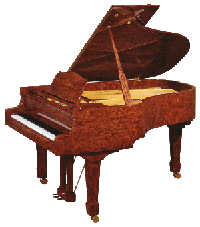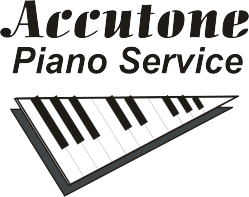This is an important question, especially these days in a weak economy. The answer is not as easy as it might sound. The short answer is that it depends on the condition of the piano, and how much or how little service it has had since it was made.
Pianos are made of many organic materials like wool, wood, leather and other materials which change over time in various ways. Felt and leather start out soft, and later become hardened. Wood can swell with moisture, and can twist and warp. Glue joints can fail under unusual circumstances like excess moisture or dryness. So, a piano may need more than just a simple tuning.
In the course of time, the steel strings also elongate and lose their pitch. It takes several tunings for the strings to stabilize and hold the pitch for a long time. There is almost nothing that can be done about this except to begin a regular schedule of tuning every 6 months to a year.
In addition to the stretching of the wires, there are the forces of temperature and humidity which act on the wooden structure. When the humidity rises, the strings are pushed to a higher pitch by changes in the humidity affecting the wooden soundboard and bridges. When the atmosphere gets dry, the opposite occurs and the piano goes flat.
If the piano isn’t tuned regularly, it usually drops in pitch. The longer it isn’t tuned, the flatter it gets. After a span of more than a year, the piano will need more than a simple tuning. That’s because it will put an additional amount of tension on the strings than it has been used to. Bringing back the tension on the strings will add many tons of extra stress on the frame of the piano, even if the pitch is only 10% flat. The piano will need a rough tuning, or “pitch raise”, first. Then, when the tension is close to where it needs to be, a fine tuning can be done.
If a piano hasn’t been tuned within the last year, it likely need both a pitch raise and tuning. My price for a regular tuning is $125, and adding the pitch raise will raise the price to $185.
It is also possible that other problems may need to be addressed before the tuning can be done. I usually won’t tune a piano unless it’s in playable condition. If there are sticking keys or other issues, I might have to do some repairs or adjustments beforehand. Any extra charges will be added to the final bill.
Really, it’s not much different from taking your car to a repair shop. How much work needs to be done must be assessed before an estimate can be done.
I hope this helps you understand some basics of piano servicing, and why I can’t give a pat answer when you ask me “How much?”



